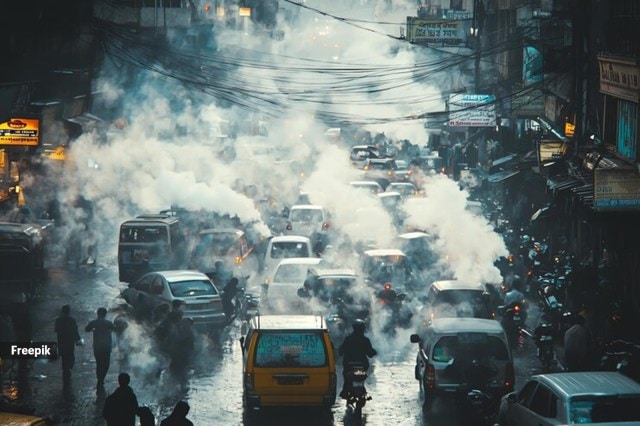Pakistan plans artificial rain after Lahore declared world’s most polluted city
The AQI measures the concentration of various pollutants in the air, with anything above 100 deemed unhealthy and over 150 considered "very unhealthy."
 When exposure to high levels of air pollution is unavoidable, such as during commuting, wearing N95 masks can help filter out PM2.5 particles. (Source: Freepik)
When exposure to high levels of air pollution is unavoidable, such as during commuting, wearing N95 masks can help filter out PM2.5 particles. (Source: Freepik)Pakistan’s Lahore has been declared the most polluted city in the world, with a shocking Air Quality Index (AQI) of 394. In response, the Punjab government has announced plans to create artificial rain to combat the smog’s impact.
The AQI measures the concentration of various pollutants in the air, with anything above 100 deemed unhealthy and over 150 considered “very unhealthy.”
The smog crisis has been exacerbated by crop residue burning and industrial emissions, leading to widespread health issues among residents, including coughing, breathing difficulties, eye irritation, and skin infections.
“Yesterday, Lahore was named the most polluted city in the world. We have initiated several steps to address this issue, and now we are planning for artificial rain in the city,” Punjab Information Minister Azma Bokhari said during a press conference on Tuesday.
Maryam Nawaz’s Punjab government has also launched an ‘Anti-Smog Squad’ to visit affected areas and raise awareness.
Smog, a blend of smoke and fog, occurs when polluting microparticles combine with cold, moist air, hanging close to the ground, reducing visibility, and causing health problems.
The anti-smog squads will educate farmers about the dangers of burning crop residues, promote the use of super seeders, and suggest alternative disposal methods.
“The positive results of our anti-smog measures will be evident in 8 to 10 years. Environmental protection is now part of the provincial curriculum,” said Punjab Senior Minister Marriyum Aurangzeb, who oversees the environment ministry. She declared that the government has “waged a war on smog.”
Aurangzeb urged farmers to avoid burning crop residues, warning that it harms not only their crops but also their children’s health.
Earlier this month, Punjab Chief Minister Maryam Nawaz called for “climate diplomacy” with India to reduce the smog’s impact. She stressed that both sides should collaborate, noting that stubble burning in India’s Punjab affects Pakistan due to air currents. “This issue must be addressed with India immediately,” she stated.
Nawaz emphasised the need to remove barriers to environmental improvement, highlighting the smog’s severe impact on breathing and eyesight.
(With inputs from PTI)
Photos





- 01
- 02
- 03
- 04
- 05

























